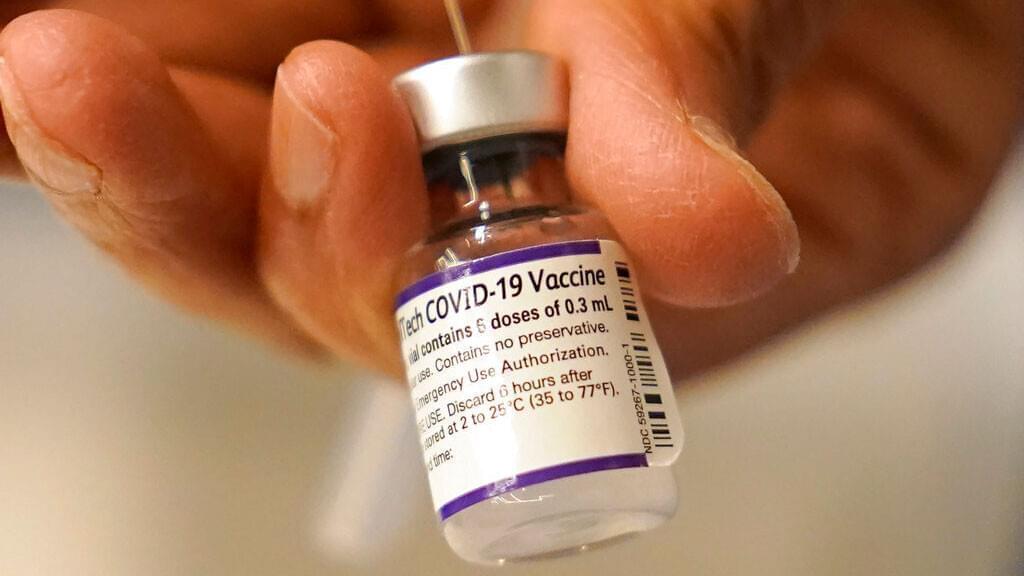The virology of the omicron variant

Dr. Manjul Shukla transfers Pfizer COVID-19 vaccine into a syringe, Thursday, Dec. 2, 2021, at a mobile vaccination clinic in Worcester, Mass. As the U.S. recorded its first confirmed case of the omicron variant, doctors across the country are experiencing a more imminent crisis with a delta variant that is sending record numbers of people to the hospital in New England and the Midwest. AP Photo/Steven Senne
As we are now in the colder months as well as the holiday season, where gatherings become more frequent, COVID cases are surging. Last week, Illinois hit an alarming milestone: more than 11,500 new cases of COVID-19. The most in a full year—since last fall—a time before vaccines were readily available. Hospitalizations have also hit a 10 month high, and according to the Chicago Tribune, it is unvaccinated people who are driving the surge. And while the omicron variant has yet to be detected in Illinois, it has been detected in St. Louis, Missouri and Minnesota, and health officials have a degree of certainty that it has already arrived and is just a matter of time before we find it. The 21st was joined by a professor of microbiology to discuss the new variant and the state of the pandemic.
GUEST:
Chris Brooke
Associate Professor of Microbiology, University of Illinois
Thursday’s caseload is nearly twice as high as any other day over the past 10 months. Officials say it’s critical that more residents get vaccinated. https://t.co/GSIGIkoEcj
— Chicago Sun-Times (@Suntimes) December 3, 2021
Prepared for web by Owen Henderson
Help shape our coverage on The 21st by joining our texting group and answering weekly questions. To join, text “TALK” to 217-803-0730 or sign up with your phone number below:

